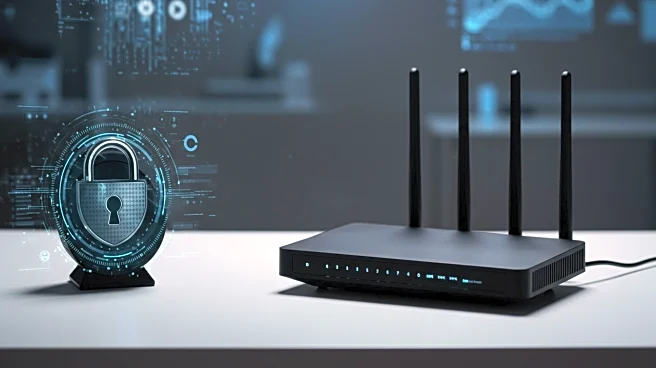What's Happening?
Internet service providers (ISPs) are reportedly engaging in bandwidth throttling, a practice where they intentionally slow down internet speeds for users. This action, although technically against regulations, is still prevalent. Users experiencing slow internet speeds are advised to first troubleshoot their equipment and network setup. If issues persist, it may indicate throttling by the ISP. A virtual private network (VPN) is recommended as a potential solution to bypass throttling, as it masks the user's IP address, making it harder for ISPs to target specific users for speed reduction.
Why It's Important?
The practice of internet throttling can significantly impact consumers, especially in an era where reliable internet is crucial for work, education, and entertainment. Throttling can lead to frustration and inefficiency, particularly for those relying on high-speed internet for remote work or streaming services. The issue also raises concerns about net neutrality and the power ISPs hold over internet access. Consumers may face limited options in areas with ISP monopolies, making it difficult to switch providers. The use of VPNs, while a workaround, can also slow down internet speeds, presenting a trade-off for users.
What's Next?
Consumers are encouraged to explore alternative ISPs if available, and to use VPNs to maintain consistent internet speeds. Advocacy for stronger net neutrality regulations may gain momentum as more users become aware of throttling practices. ISPs may face increased scrutiny and pressure to provide transparent and fair service. Users are advised to monitor their internet speeds and report any discrepancies to their providers, potentially negotiating for better service or considering legal action if throttling is proven.
Beyond the Headlines
The issue of internet throttling touches on broader themes of digital rights and consumer protection. As internet access becomes increasingly essential, the debate over net neutrality and ISP regulation is likely to intensify. The legal landscape surrounding throttling is complex, with variations in state laws and ongoing legal challenges. This situation underscores the need for clear and enforceable regulations to protect consumers and ensure equitable access to internet services.










